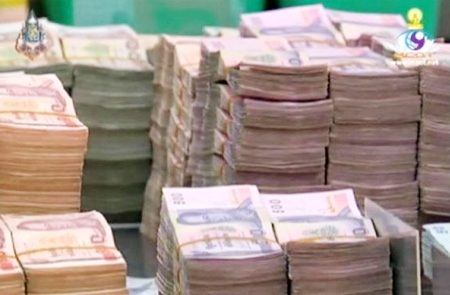BANGKOK, June 3 – Thai exporters hailed the depreciating baht but remained cautious as the Thai currency is still 2-5 per cent stronger than others in the region, the chairman of the Federation of Thai Industries (FTI) said today.
Payungsak Chatsuthipol said the higher baht against the regional currencies has impacted Thailand’s competitiveness as investors have yet to closely monitor the situation, especially the quantitative easing (QE) which was announced by the United States, European countries and Japan.

The private sector wants the government and the Bank of Thailand (BoT) to respond to the currency movement in a timely manner instead of delaying action, he said.
Issara Wongkusolkit, chairman of the Thai Chamber of Commerce (TCC), called on the government to rein in the baht to ensure that it moves in tandem with regional currencies.
Wallop Witnakorn, TCC vice chairman, said the baht depreciation was mainly due to the US Federal Reserve’s signal on early termination of QE measures, and not the Monetary Policy Committee’s decision on interest rate cut by 0.25 per cent last week.
He said the baht will possibly surge to Bt28.50 against the dollar again late this year given the global economic pressure and foreign capital inflows after Japan’s QE exercise.
Japan is determined to weaken the yen at less than Y105 against the dollar to stimulate exports, he said.
Virasak Sutanthavibul, Bangkok Bank’s executive vice president, said Thai business operators felt more at ease with the baht and wanted it be stable so that they could adjust to the situation.
He said commercial banks will not immediately reduce their interest rates despite the policy rate cut by 0.25 per cent as they must stay competitive.
Reducing the policy interest rate will have a direct impact on the bond market which is heavily invested by foreigners, he said.




